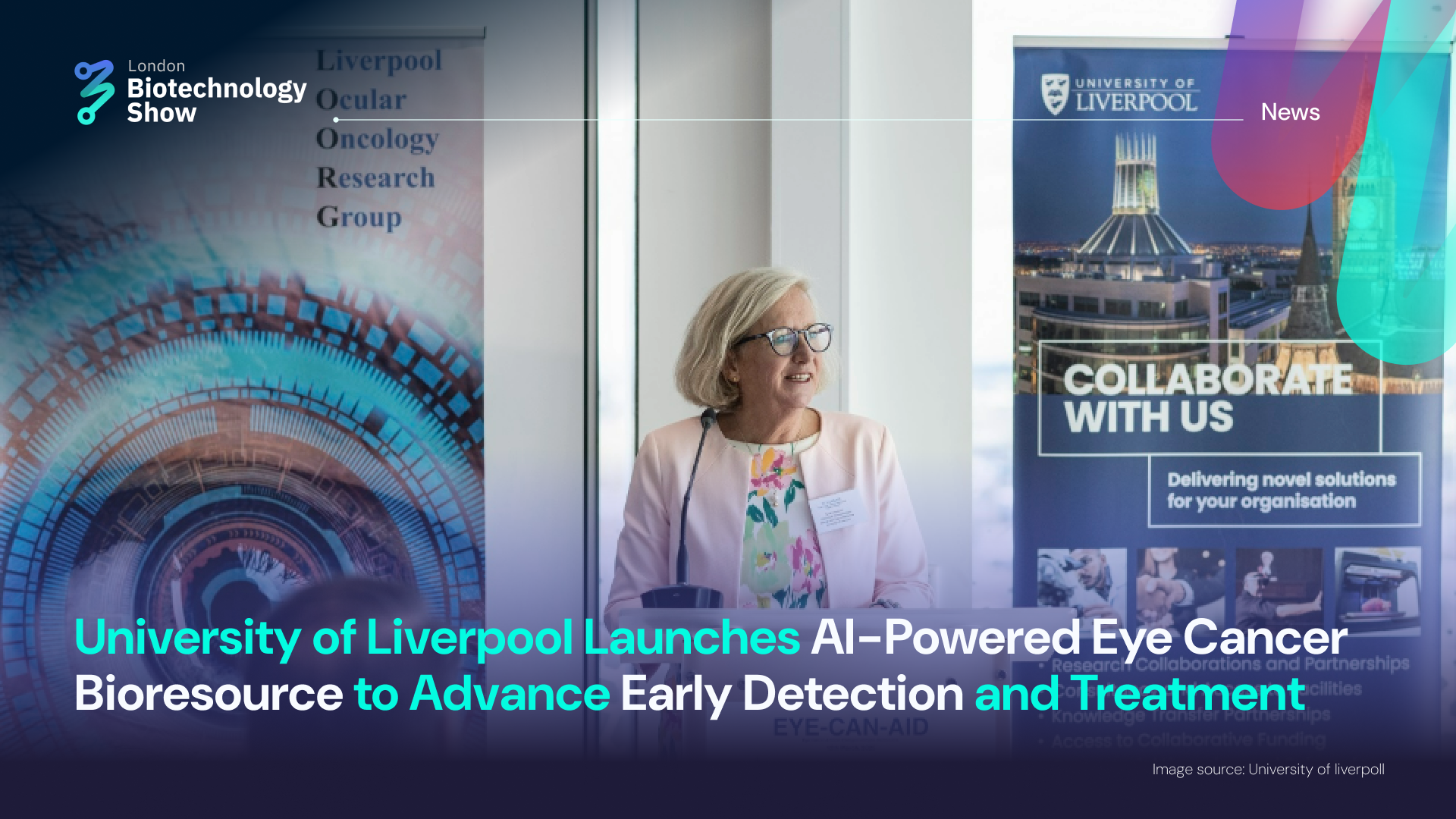13 March, 2025: The University of Liverpool has introduced the Eye Cancer Artificial Intelligence Digital Bioresource (EYE-CAN-AID)—a groundbreaking initiative aimed at improving early detection and treatment of rare eye cancers.
The launch featured cutting-edge technology from Roche Diagnostics, including the VENTANA DP 600 digital pathology slide scanner. This high-resolution scanner will play a key role in analyzing eye cancer cells and tissues, providing high-quality digital imaging for precise diagnosis and treatment planning.
Eye cancers, though rare—with approximately 1,000 new cases annually in the UK—can have severe consequences, including blindness, visual impairment, and, in some cases, a high mortality rate. The need for earlier detection and more effective treatments is critical to improving patient outcomes and quality of life.
EYE-CAN-AID builds upon a unique eye cancer biobank established 14 years ago in collaboration with the Liverpool Ocular Oncology Centre (LOOC)—one of only three specialist eye cancer centers in the UK, alongside those in Sheffield and London. The initiative will integrate clinical, radiological, histological, and genetic data from patients across NHS England.
Using AI-driven analysis, researchers aim to develop advanced diagnostic tools that enable faster, more accurate, and personalized treatments for eye cancer patients.
Professor Sarah Coupland, Director of the Liverpool Ocular Oncology Research Group (LOORG), has led eye cancer research for nearly two decades. A strong advocate for AI-driven digital pathology, she has collaborated with Roche for the past seven years through an Innovate UK project. In the university’s publication, Sarah said:
"By uniting clinicians, researchers, industry leaders, and charities, we are deepening our understanding of eye cancer, its causes, and potential treatments," said Professor Coupland. "This initiative wouldn’t be possible without the support of patients and their families, who make this vital research a reality."
She also highlighted the importance of Roche’s digital pathology slide scanner, which enhances high-volume, high-quality scanning, facilitating rapid and more accurate diagnoses.
Luke Benko, International Business Leader, Digital Pathology at Roche Diagnostics (Tucson, USA), emphasised the transformative impact of digital pathology in cancer treatment saying:
“Overcoming adoption barriers is crucial in advancing cancer treatment. Digital pathology helps to enable faster and more accurate diagnosis, allowing for more precise and personalised treatments.
“Our collaboration with the University of Liverpool, Eye Cancer Artificial Intelligence Digital Bioresource, has created a first-of-its-kind digital repository for rare eye cancer. The goal is to provide an equitable and accessible resource to the scientific community, potentially improving disease treatment, enabling researchers and doctors worldwide to benefit and helping enhance patient care.”
EYE-CAN-AID will provide secure, long-term storage of clinical images, cancer samples, and linked data, fostering collaboration among researchers and healthcare professionals. The initiative will support critical advancements, including:
- Identifying causes of eye cancers
- Developing biological markers to predict treatment efficacy
- Using AI to detect early cancer signs in eye and radiology images
- Personalising treatment plans for improved patient outcomes
By leveraging AI and digital pathology, EYE-CAN-AID marks a significant milestone in precision medicine, offering new hope for patients battling rare eye cancers.

